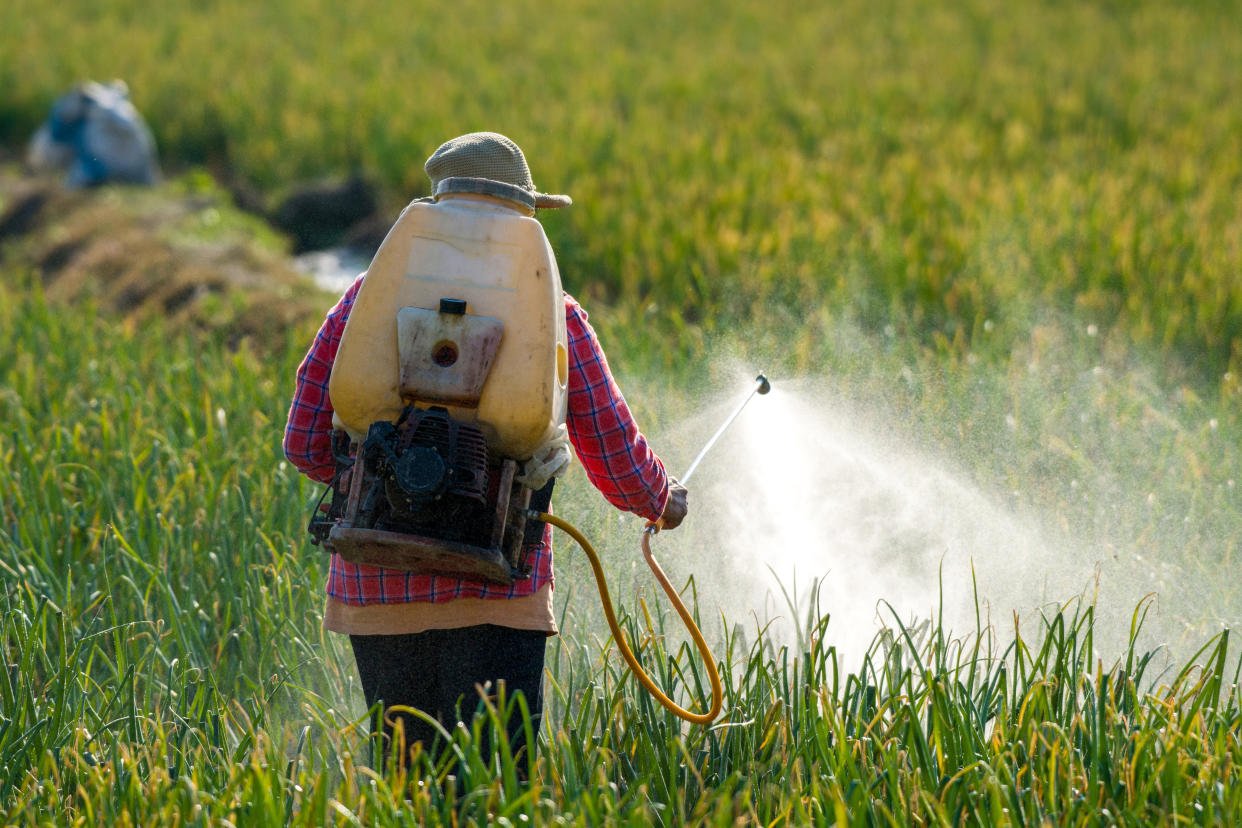EPA bans common pesticide, new research in kids COVID mystery and 3rd listeria outbreak death: Catch up on the week's health news here

Hello, health and wellness readers. My name is Kaitlin, your guide to the latest news you may have missed.
Here’s what the Yahoo Life team wrote about this week:
Should we put down the Halo Top?! I wrote about new research into the sugar substitute erythritol, and how it may be linked to blood clots.
Olympic boxer Imane Khelif is not a transgender woman, so why is there so much controversy over her win? Nathalie Rahhal breaks it down.
Jimmy Carter went into hospice a year and a half ago. Rebecca Corey explains how common that is, and what these care facilities actually do.
Move over, cottage cheese ice cream and baked oats: Cucumbers are having their viral moment. Here’s what nutritionists want you to know about those tasty salads on your "for you" page.
Fans are getting emotional over the Olympics. Kerry Justich explains why you’re crying over the games, even when you didn’t lose a medal.
What’s the leading cause of death in America right now? The answer may surprise you.
Simone Biles is the GOAT of gymnastics — and of prioritizing her mental health. Korin Miller shares the healthy habits we can all adopt, even if we’ll never match Biles’s floor routine.
Here are three more stories you need to know about this week:
The EPA bans a widely used pesticide
The U.S. Environmental Protection Agency has taken emergency action to suspend the use of a pesticide over health concerns — the first time it has done so in more than 40 years. The EPA found that dimethyl tetrachloroterephthalate, also known as DCPA or Dacthal, was linked to low birth weights for babies exposed in utero, as well as brain development issues later in life, leading the EPA to call to remove it from the market immediately.
Why it matters: DCPA was first put to use in 1958 and is a common pesticide for produce like broccoli and Brussels sprouts, onions and cabbage, and is also used as a weed killer for turf grass. Farm workers who come in close contact with the chemical are at greatest risk for unhealthy exposure. Many pregnant people did not know they were exposed to a dangerous chemical, making it vital for the EPA to step in to protect future generations from the pesticide.
The EPA previously stepped in and banned DDT (dichlorodiphenyltrichloroethane) in 1972 due to its harmful environmental effects and its potential risks to human health. DDT, which was widely used as an insecticide before its ban, has been linked to a range of conditions, including breast cancer, obesity, birth defects, reduced fertility and testicular cancer. Due to dumping of the chemical, it can still be found in ocean life.
Doctors learn more about a COVID mystery for kids
For some children, a COVID-19 infection leads to multi-system inflammatory syndrome, or MIS-C for short. This rare illness, which occurs in about 1 out of every 2,000 children who are affected with COVID, includes symptoms like vomiting, high fevers and heart inflammation. While most children eventually recover, MIS-C can lead to hospitalization and, in rare cases, even death.
Now, a new study published in Nature says that there’s a reason why some kids develop this condition. The research found it has to do with an incorrect calculation on the part of the child’s immune system. In cases of MIS-C, the system that is supposed to help your body fight infection mistakenly believes that part of the coronavirus is a protein made by the immune system itself. This means that the immune system targets itself, instead of the virus, leading to inflammation and the other symptoms.
What it means: COVID is often considered a higher risk for older people, but MIS-C shows that COVID can cause serious harm to children as well. Knowing exactly why MIS-C happens can help doctors fight it down the road.
It’s also important to note that MIS-C is more common in children not vaccinated for COVID-19, and that the number of MIS-C cases also rises about four weeks after waves of COVID-19 cases hit a community. At the moment, we are currently experiencing a COVID wave across the country, so if your child is exposed and experiencing symptoms consistent with MIS-C, it’s important to speak to their doctor.
Third person dies after listeria outbreak
An unnamed Virginia resident became the third person to die due to a listeria outbreak linked to packaged deli meat, per a new report from the Centers for Disease Control and Prevention. In total, 43 people have been hospitalized after becoming ill due to listeria during this outbreak across 13 states.
The outbreak has been linked to Boar’s Head products, with a sample of Boar’s Head liverwurst testing positive for listeria in July. The company has recalled all of its deli products with sell-by dates between July 29 and Oct. 17, 2024.
Why it matters: Listeria is a type of bacteria found in contaminated food, and is most common in raw or undercooked meats, dairy products and ready-to-eat foods like deli meat or hot dogs. It can cause a serious infection, particularly in older adults, pregnant women and people with weakened immune systems. Symptoms include fever, muscle aches, diarrhea and vomiting.
Though only 13 states have reported illnesses, it’s important to note that the recalled deli meat was sold nationwide, and that there may be a delay in the reporting of illnesses from this meat. Some people may also recover at home and not realize they are affected at all.
In order to keep yourself and your family safe, it’s recommended to discard or return these meats to the store for a refund. As listeria bacteria can survive and even grow under cold conditions, experts recommend you thoroughly clean and sanitize your fridge after removing these products.


